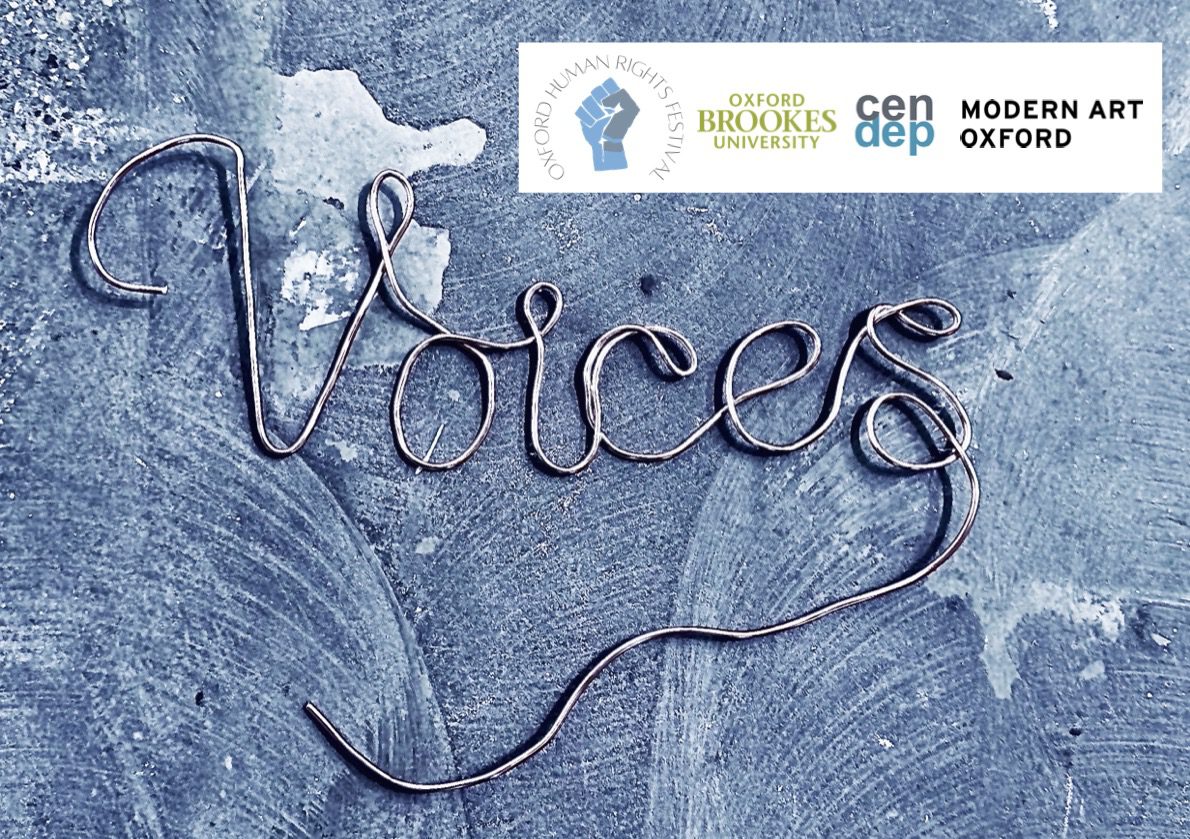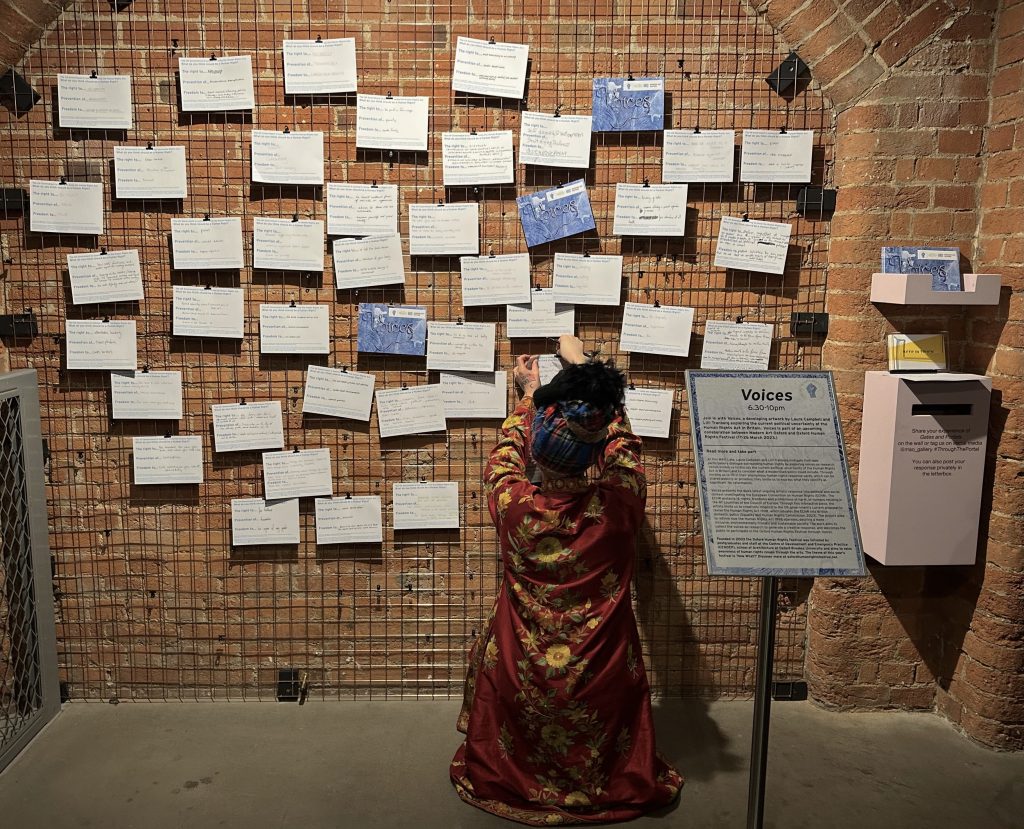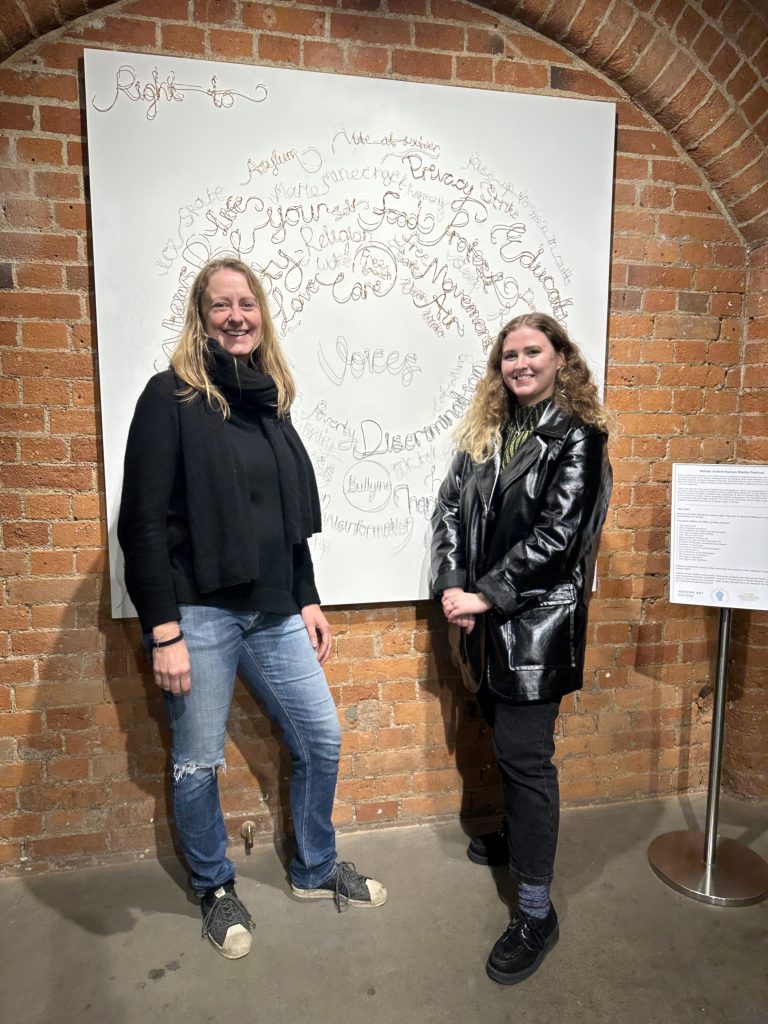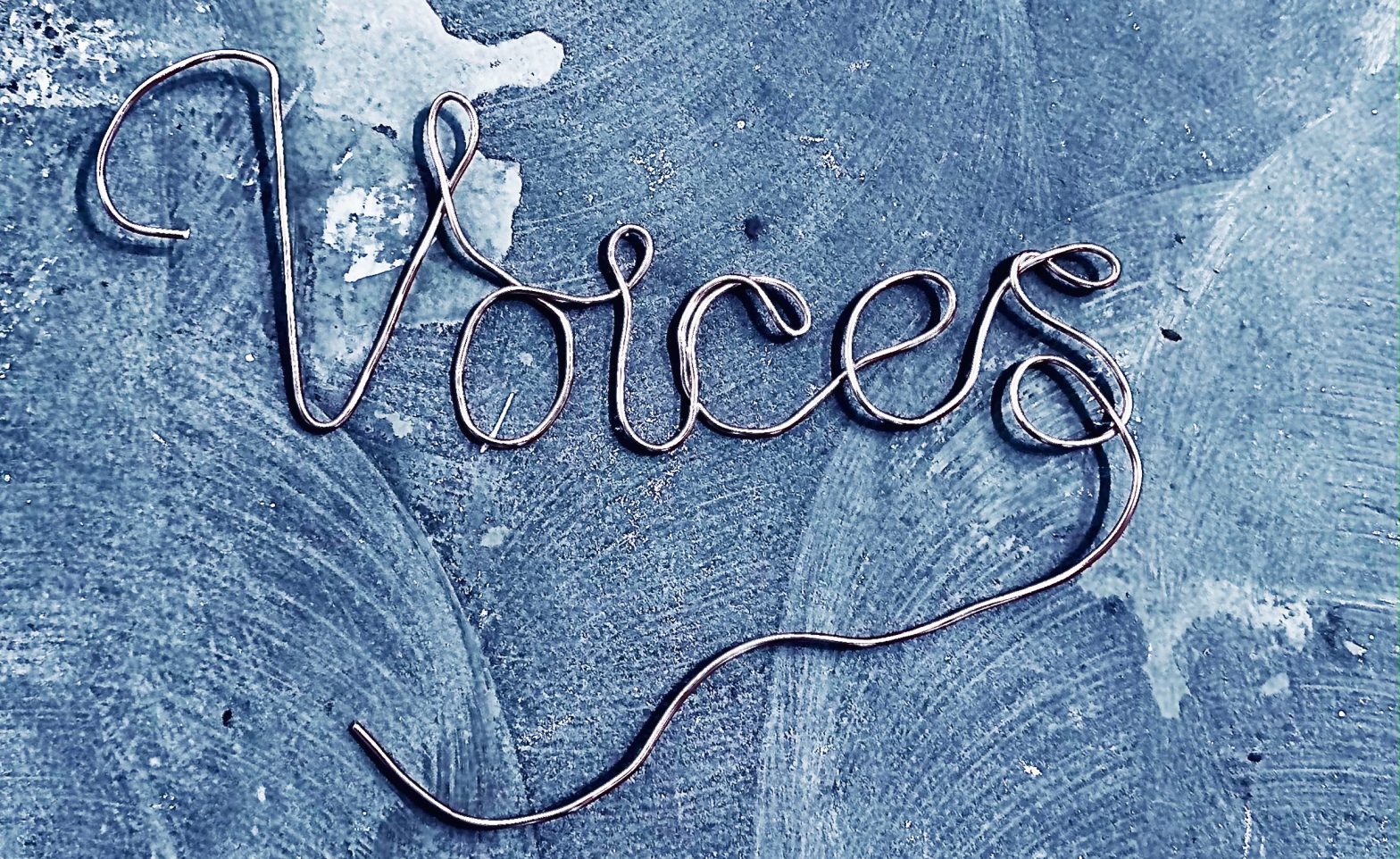How can an artwork investigate the future of our human rights?
In early 2023, artists and Oxford Brookes MFA students Laura Campbell and Lilli Tranborg set about instigating a creative public conversation about the UK Human Rights Act. Their resulting project Voices invites us to reflect on our own rights in light of the current political uncertainty of the Human Rights Act in Britain. In her account of the project, Laura Campbell explores the importance of prioritising public voices for this process-based work, providing a fascinating template for anyone looking to conduct experimental creative research. Voices was presented by Modern Art Oxford as part of the Oxford Human Rights Festival (17 – 26 March 2023).
Developed from conversations discussing the recent proposals suggested by the UK government to revise the Human Rights Act, Lilli Tranborg and I decided it would be necessary to explore what the government’s potential revision of the Human Rights Act could mean for UK Citizens. This questioning led to developing the Voices creative research project in collaboration with Modern Art Oxford, and the Oxford Human Rights Festival 2023 in response to the festival’s theme ‘Now What.’

We had often found ourselves asking the question of ‘Now What?’ during the early research stages of Voices, particularly in response to the revision of the Human Right Act and its potential social, political, economic, and environmental changes which could impact every UK citizen. After investigating the current 16 Rights, Freedoms and Prohibitions of the 1998 Human Rights Act, we had our own opinions on what could be included within a revised Act, and we were interested to know the opinions of others too. This curiosity led to expanding our thoughts into a creative research project. Our aim was to discuss this revision while providing the audience with the opportunity to participate by sharing their voices.

Data Collection
We worked closely with Modern Art Oxford to create some participatory question cards which featured the statements of the ‘Freedom To’, the ‘Right To’ and the ‘Prevention Of’, offering the audience space to share their voices. The data collected was mostly gained from the gallery’s MAO Late Artist Exchange event (16 February 2023), brought together by artist and facilitator Deborah Pill. Deborah gave us the opportunity to introduce the Voices creative research project to a live audience and discuss the audience’s thoughts on the government’s revision of the act. This also facilitated the space for audience participation, as we collected many varied answers from different demographics, receiving personal insight into what they thought would be significant additions to a revised Human Rights Act. We encouraged the participants to hang the feedback forms onto the gallery wall in the Café at Modern Art Oxford, gradually accumulating a series of collective voices, presented in unison, speaking to a relevant current political and social discussion.

Data Processing
After ensuring we had the participant’s consent, we documented the installation of feedback responses and collected the hard copies of the data. We processed and categorised this data into responses that applied to the ‘Right To’, followed by the ‘Freedom To’ and then the ‘Prevention Of’, noting whether we had gained consent and where the data had been collected. After the full collection of data, we created a more refined database, documenting the subsections of opinions people seemed to share. We discovered that there were specific themes present within the data, which many people shared. For example, the answers to ‘Right To’ and ‘Freedom To’ tended to involve personal identity, while the answers to ‘Prevention Of’ often referenced hate crimes and discrimination.

Outcome
We wanted to create a large-scale representation of the audience’s voices in relation to the potential revision of the Human Rights Act. We created a visual installation of the participants’ voices, using metal wire of different thicknesses, sizes and colours, to write the audience’s responses. The thickness, size and colour of the wire was allocated accordingly to the tone of each response. To distinguish the varied types of data received, we decided to use copper wire to make the ‘Right To’ and the ‘Freedom To’ responses, and silver wire to create the responses gained from the ‘Prevention Of.’ For example, we had collected many responses that supported the ‘Right To Love Freely’, and therefore used thick, copper wire in a large size to create the words ‘Love Freely’, as a large number of people had mentioned this in their question card.

The physical outcome of this element of the creative research project depicted a large scale 1.5 x 1.5m installation of the audience’s voices, created from copper and silver wire onto a white background. Alongside the installation featured written information regarding the project and the current freedoms within the Human Rights Act, alongside a postbox and the Voices question cards. This installation was hosted by Modern Art Oxford, in collaboration with the Oxford Human Rights Festival 2023, installed for the duration of the festival from the 17th-26th March 2023. The artwork was situated in the Café where the feedback cards were originally placed during the MAO Late event, echoing the discourse present within the artist exchange and creating a resolved visual representation of the audience’s voices.

What next?
The socio-political climate of the United Kingdom is ever changing, with new and revised Acts and measures being regularly introduced as a response to current events. The Voices project has longevity, and we hope to continue our research and further develop the project into a series of large-scale installations reflective of public views regarding Human Rights in the UK. Overall, the opportunity to collaborate with the Oxford Human Rights Festival 2023, and Modern Art Oxford has provided us with the facilities to research and create artwork through audience participation which is highly responsive to current socio-political events.
